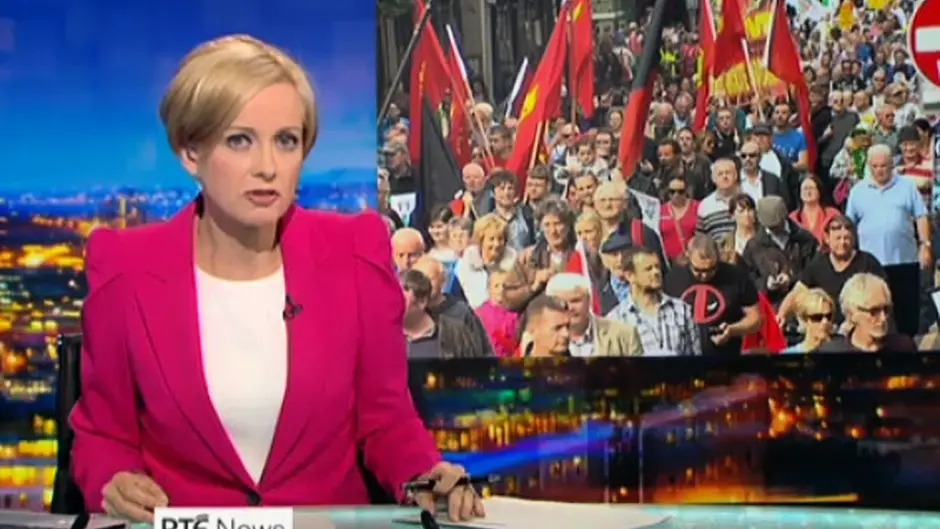RTE’s role as ‘cheerleader in chief’ for water protesters who advocated flouting the law needs to be examined, writes Jim Daly
RTE’s role as ‘cheerleader in chief’ for water protesters who advocated flouting the law needs to be examined, writes Jim Daly
I BELIEVE that lessons must always be learnt from any experience and particularly one as controversial as the water charges debacle during the lifetime of the last Government.
Let me be crystal clear from the outset: this issue was seriously mishandled by the Government and very poorly communicated to the people and the following thoughts are in no way an effort to take from that culpability.
I would love to see an independent review carried out by an academic of the media’s role in the debacle that was, and is, water charges. I personally have particular concern with RTÉ, the State broadcaster, and the role it played as cheerleader in chief for those who were advocating flouting the law of the land.
RTÉ promoted the protests with gusto on their website and hourly bulletins as if they were St Patrick’s Day parades. RTÉ will, of course, claim it was merely reporting the news.
RTÉ is part-funded by the TV licence fees it collects, amounting to some €180m per annum, but with this comes certain responsibilities that do not apply to other media outlets.
RTÉ are statutorily obliged, not just to report and entertain, but also to research and inform the public on matters of general interest. Yet it was not until after the General Election in 2016 that RTÉ saw fit to broadcast a programme highlighting the appalling state of our water network and the tonnes of raw sewerage being pumped untreated into our waters every day.
I emailed and phoned the producer of Morning Ireland on Sunday November 2nd 2014 after RTÉ news had covered a protest outside my constituency office in Bandon as part of their coverage of a series of such protests the previous day.
Significantly, less than 1% of the population of Bandon town, fronted by political activists from other towns, proclaimed that ‘Bandon said No to water charges’ on the RTÉ news. This was wrong and grossly misleading in the view of many people in the town.
I literally pleaded with the producer to allow me onto Morning Ireland the following morning to articulate the frustrations of thousands of people in West Cork who have been paying for water for decades through the supply and maintenance costs of their own well, or their participation in a group water scheme, or as farmers and business people. Add to this the thousands of other people in West Cork who were compliant with the law and agreed that treated water was something that should be paid for by the user. These people felt hugely aggrieved that they had no voice as the ‘No way, we won’t pay’ brigade gained increasing exposure and airtime on the national broadcaster.
My pleas fell on deaf ears and the frustrations of the people I represented continued to grow as RTÉ failed, in my view, to fulfil its responsibilities to adequately inform the public on both sides of the debate.
I have no monopoly on wisdom but, as an elected representative of the people, I am duty-bound to articulate the views of my constituents.
I sense a significant shift in approach to this issue from RTÉ since the election last year, and believe that many lessons have been learnt by all sides.
Politicians both revere and fear the media in equal measure, often cultivating unhealthy symbiotic relationships that can serve both parties well. It is most likely not in my interest to be criticising an entity with the power and reach of RTÉ, but I believe such a hugely powerful and influential organisation should be open to these legitimate questions in the interest of fairness and natural justice.
Jim Daly is a Fine Gael TD for Cork South West and a member of the all-party Oireachtas committee on the future funding of water.









